#magnanimity
Text
Anon wrote: INFJ with weak Fe. Immature FPs can be amazingly noble and loyal at times, but their combination of sensitivity and insensitivity toward others can irritate me. In particular, with my ISFP (now former, I guess) best friend of many years, in response to a question she asked about why I list my educational background (I went to top universities) on dating apps, I mentioned that I want to make it very clear that I value my career (to indicate I won't be e.g. a homemaker).
I realize this may have come off as arrogant or prejudiced. I truly believe that college admissions is very noisy and biased in countless ways, but I also cannot engage with all the people who show interest in dating apps and the goal here was to filter as efficiently as possible. I have observed that some men have a strong reaction to my accomplishments, and I think it’s best to filter that out from the outset - forgot whether I said that to her explicitly at the time.
It's an open question whether listing my education is the best way of filtering for compatibility, of course. She went to a less prestigious university, and has mentioned many times that she is deeply insecure about this. I could tell that she was quite offended (there was a lengthy pause after I said that), and despite 13 years of fairly close friendship she ghosted me almost immediately (it’s been a couple months now of no response). She was also going through a hard time more generally.
I was also very offended in this same conversation that she revealed some very private information to me about another friend of hers and spoke in a condescending manner toward this friend, who was going through a very tough time. Now I feel like my ability to trust her has seriously declined. This is abnormal behavior from her, I should say - she normally speaks of her other friends in a respectful manner and doesn't gossip about them.
She has been insensitive toward me in countless small ways (self-absorption, often being late or flaky, some insensitive comments, although usually when she herself is under stress), though also extremely sweet and caring at times (e.g. sending me encouraging notes on the day of important presentations, sending me a care package when I was going through a tough time, etc.). I don't think she's ever really been healthy as she consistently has sort of a cynical attitude.
I also get the sense that immature Fi types basically cannot handle criticism so am not even sure we can have a rational discussion about these topics. We’ve never really had a ”meta“ discussion about our friendship - there’s a lot that has been unsaid, with silent resentment on both sides presumably. I kind of attempted to ghost her (very immature, I know - not something I would do now) a few years ago, in response to her being very late yet again without an apology. To be fair, she was going through a breakup and was a bit of a mess. However, she was somewhat persistent and we continued the friendship, albeit on somewhat shakier footing.
Conversations with her are not quite as easy as with N types, but there's something special about the very long shared history. I am seriously considering whether to reach out and apologize for the educational pedigree comment, or just let the friendship go. The latter would sadden me - she was the only person outside of my family who was there for me during the most difficult time of my life. As of now, my inclination is toward reaching out to her and at least trying to hear her perspective on why she ghosted me. This would be the first step toward a more "conscious" friendship, which is one of my main goals in life more generally. Do you have any advice on how to best go about salvaging this friendship?
What am I missing about my own blind spots here? From her perspective, I can see that I may have made insensitive comments to her (saying that I am unlikely to go back to school due to the financial opportunity cost, in a conversation when she shared that she is experiencing anxiety due to emptying her savings to do a master's degree). And also being fairly self-absorbed on a vacation we went on awhile back, due to stress about grad school.
I'm not sure it feels totally right to me to apologize for the education comment - I stand by my reasoning that it's crucial to filter out incompatible people from the outset - although I do feel bad if her feelings were hurt at an already difficult time for her. I'm debating whether to bring up in the same message how her violating her friend's privacy weakened my trust in her, or defer that to later. )
[addendum] Funnily enough, though around three months had elapsed since my last message to her, she just texted me and we're planning to meet up sometime soon. So I guess my question is if you have advice on whether I should explicitly raise these topics - me making it clear I don't think less of anyone based on which college they went to, and also express that the way she spoke about her friend made me uncomfortable - and if so, how.
---------------------
1) With regard to communication skills: It's not my place to tell people what to do. You have to learn to trust your instincts in social situations, otherwise, you'll never be able to develop healthy Ni+Fe. When socializing, context matters a lot in deciding whether it's the right/wrong time to talk about something. There are no hard and fast rules other than be observant of the emotional atmosphere.
Work your way into difficult topics gradually or tentatively in order to gauge the other person's receptiveness. Being too abrupt/direct reveals your impatience and puts people on the spot, which is more likely to make them close up. Deliberately taking things slow makes difficult conversations go more smoothly because it gives people time and space to reflect and prepare mentally and emotionally.
2) With regard to your blind spots: It's not a crime to want certain things from a relationship or even to hope for them. However, it is unreasonable to expect/demand things from people who aren't capable of giving those things. For example, if I was a parent, of course I would wish for my child to be on their best behavior at all times. But it's unreasonable to expect/demand that children behave like perfect little adults because that's just not what they are, and it would do them great harm to stifle their natural tendency to be active and exploratory.
Relationship expectations should always be grounded in reality. One of the dangers of unhealthy Ni is not realizing when you are disconnected from reality. In the worst case scenario, Ni's idealism mutates into perfectionism, and then that perfectionism gets projected out onto the world in the form of unreasonable standards and expectations.
For example, you said that your friend has experienced certain hardships that account for her negative behavior, so are you still expecting her to behave like a person who hasn't experienced those hardships? You must be, since you still judge her for it. Answer honestly: Do you expect her to live up to some ideal in your head about what she should be? If so, the problem is you.
In a truly close relationship, both people should be mature enough to discuss anything openly and honestly. If that's not the case here, then you have to think more carefully about whether bringing up a problem will help/hurt the relationship. As a general rule, if you're unhappy about how a relationship is going, you ought to discuss it and try to resolve the issue together. However, if the source of unhappiness lies squarely in your unreasonable expectations, the burden falls mainly upon you to change your perspective in order to resolve the issue.
3) With regard to Fe development, there are several aspects to it and your lack of Fe development might produce some blind spots.
a) Empathy: You give off the appearance of empathizing, such as pointing out her good qualities and trying to understand what motivates her behavior, but your empathy isn't real when you just end up passing judgment on her. Your judgmentalness even leads you onto a moral high horse to stereotype all "immature" Fi people. If this is how you're going to apply ideas about type, i.e, to justify and vent about your frustrations, you're doing it wrong. The purpose of learning about different personality types is to foster empathy.
Developing Fe should promote empathy by allowing INFJs to inhabit the experience of others. However, immature FJs with ego development issues often end up twisting the idea of empathy. Perhaps they try too hard to be a good person for ego identity reasons and then empathy easily morphs into self-sacrifice or martyrdom and, eventually, self-harm. The more they sacrifice in relationships, the more resentment builds up, and the more repressed anger and then rage they unconsciously harbor. This makes them less and less empathetic and more and more judgmental over time, which sabotages their original goal of being a good person. The more judgmental they are, the more jaded their outlook, and the more likely they are to conclude that people are bad, adversarial, or even irredeemable, which then justifies continued fixation on people's negative qualities/behaviors in a vicious cycle.
Thus, judgmentalness is a common symptom of Fe development problems. To be in the habit of positioning oneself as "judge" is to like the feeling of being morally righteous and/or morally superior... but only in one's own mind. In reality, a judgmental attitude is the mark of an insecure person. Secure people have absolutely no need to convince themselves of their own righteousness or superiority, let alone try to prove it to anyone.
b) Emotional Intelligence: Judgmentalness is a sign of emotional immaturity. Being immature means you have yet to learn how to set a healthy boundary between self and world, so you are very inclined to believe that your feelings/emotions are caused by others, and this means your emotional stability is always at the mercy of others. Whenever you feel hurt, disappointed, jealous, resentful, angry, etc, you don't take responsibility for how you generated that feeling and, instead, look for someone/something to blame.
To blame is to be morally judgmental. People like to blame because it feels good; it feels as though you're righting a wrong when you identify the source of wrongdoing. In reality, blame only feels good because people willfully ignore its downsides.
For one, the longer you allow yourself to live in a blaming mindset, the easier and easier it becomes to justify bitter, cynical, harsh, aggressive, controlling, manipulative, vindictive, cruel, and even violent thoughts and behaviors. People don't start out life wanting to be a bad person. They become so when they aren't aware that their judgment process is increasingly fueled by negative emotions like resentment and anger, thereby opening up the space for dark traits to eventually take over.
The other downside of blame is that it severs connection, so it's basically poison to relationships. Casting blame is like barking a demand. You didn't like what the other person did, so you demand that they change and behave as you want them to, which puts them on the spot of either submitting (which foments resentment) or resisting (which foments anger). Since FJs really dislike open and naked conflict, they may resort to blaming people silently, believing that it has no real-world effect. However, it still motivates you to detach. In a close relationship, emotional distance or coldness is easily felt.
c) Fairness and Equality: Conflict is inevitable in close relationships, so it's important to accept the fact rather than try to avoid or resist it. Different people have different needs, desires, goals, and aspirations, so there's bound to be some disagreement that sparks conflict. What matters most is whether you can handle conflict in an objective way that allows both people to walk away feeling as though they were heard, understood, and treated fairly.
Being judgmental means you're not being fair because it's really just about projecting and venting your feelings and emotions. Thus, it makes your view of things too one-sided. If you approach the conflict resolution process with judgmentalness, you immediately put the other person on the defensive and at risk of judging you back in an attempt to "even the score". What happens then? Warfare.
When two people disagree, it should be accepted as normal, acceptable, and something that needs to be worked out through proper communication. When your emotional needs aren't being met in the relationship, take responsibility for them rather than blaming the other person, and discuss ways to move forward in way that both people can live with. See the article in the site index about Communicating Through Conflict for more detail.
d) Compassion, Generosity, and Magnanimity: These things come as you work to improve your capacity for empathy.
- Empathy allows you to feel the suffering of others, which motivates you to treat them with kindness and compassion, in order to alleviate some of that suffering. Observe yourself carefully when you're feeling judgmental and blame-y, is there still space left for kindness and compassion in you? You can't have it both ways, so choose the person you'd rather be.
- Mature FJs understand the concept of emotional needs: what they are, how to read them, how to fulfill them, and what happens when they go unfulfilled. They attend to everyone's emotional needs because they understand that doing so will improve spirits and make it far easier for people to grow closer and cooperate (harmony).
It doesn't matter what type you are, if you grew up in an environment that didn't recognize and honor emotional needs (which is true for a lot of people), you're more likely to be an emotionally "stingy" person and view relationships as win/lose competitions. Emotionally stingy people tend to view love as something they get (to fill the void within) rather than something they generate (for transforming their entire way of being). Emotionally stingy people are: unwilling to give others the benefit of the doubt, ignorant about how to meet emotional needs, and unwilling to devote energy to anything larger than themselves. But an emotionally deprived upbringing can be reversed in adulthood by actively nurturing emotional generosity.
Emotional generosity is about the willingness to give and not expect something in return other than to feel the simple joy of seeing someone else satisfied. This is a concept FJs often struggle with. They understand that when you expect something in return for giving, you aren't really being motivated by generosity. If generosity isn't the motivation, then it must be selfishness, right? Wrong.
Everyone has emotional needs, including you. Are you able to accept that you're human and have needs? Perfectionist INFJs aren't. It is important to attend to emotional needs in order to feel truly fulfilled in life. What's most important is how you go about getting your needs met. You have to be assertive to work for the things you need in life or ask for them when you aren't able to get them for yourself.
However, many FJs struggle with assertiveness because they have trouble acknowledging their own needs, so, instead, they give a lot to others in secret hopes of getting something back. And this is how they get into relationship trouble. This goes back to the idea of setting healthy boundaries between self and others. Getting what you need should not be too entangled with giving others what they need because it might produce a conflict of interest where you're forced to choose between yourself or others.
- When you learn to be more emotionally generous, you also become more magnanimous. This means you are able to keep your eye on the bigger picture, e.g.: of what kind of person you aspire to be, of what value a relationship truly has in your heart, of what your existence contributes to the larger fabric of society. Armed with a broader vision of life (which also relates to Ni development), you become a much more giving and forgiving person because you don't fixate on meaningless details or get distracted by trivial matters.
One thing I've observed over and over again is, when you ask people who are estranged from formerly close friends/family about "The Fight" that ended things, they often can't remember exactly what it was about. What does that tell you? It tells you that small-mindedness and pettiness often get in the way of love. Only with time and distance (i.e. the bigger picture) do they realize how insignificant the conflict really was and how pathetic it was to break up a relationship over something so minor. But, at the time of the break up, it seemed to them like the world was ending.
Are you guilty of small-mindedness? Are you so narrow in your focus in relationships that you're unable to see the bigger picture and then waste energy sweating all the small stuff? This goes back to the idea of expectations. If you're the kind of person who feels compelled to remake the world to match your ideal images, you're not going to do well in relationships. And if you are this kind of person, why? Usually, it is because of insecurity or self-loathing. If there are aspects of yourself that you deem unworthy of love and are constantly trying to disown/remove, how are you going to be accepting of these aspects when you see them out there in the world in other people?
To love is to accept someone as is. To love is to appreciate every aspect of someone because all their aspects are important for making them who they are. Before you think about how to filter people out of your dating pool, perhaps you should reflect on whether you are truly capable of love, which starts with being able to embrace and love all of yourself. If you're not capable of love, it doesn't matter who you meet, does it? Even if your perfect soulmate were to magically drop into your lap, you wouldn't be able to truly see and appreciate them anyway.
#infj#infj relationships#auxiliary fe#expectations#judgmental#blame#small mindedness#pettiness#resentment#anger#empathy#compassion#magnanimity#generosity#needs#boundaries#communication#emotional intelligence#ask
22 notes
·
View notes
Text
"A young Italian was drafted into the army during the First World War. For months he hid in the mountains with his comrades. They had almost no provisions left. The order was to defend the mountain pass at any cost. Feeling a sense of absurdity that he tried to hide from the others, he kept a journal. One night he noticed the movement of troops in the pass on the other side of the cliffs separating the narrow valley, and he thought that all was lost. The offensive would occur the very next day, that much was certain, and he knew he and his comrades would not have enough ammunition.
That night, without his comrades knowing, he decided to venture as close as possible to the enemy camp. Halfway there he almost turned back; he heard a song rising from a gramophone. The surprise held him. He was so moved by it that he decided to come forward until he was seen in the open, a sign of surrender in his hand. He was captured immediately and brought to the officer of the German army. The record was still playing. They both knew the tune. The voice that rose from the recording had an unusual gentleness.
The German officer talked with this man all night. Risking everything, the Italian explained the position of his troops, their certain death, and put their fate completely in his hands. The German officer let him leave in the morning. And he never launched the attack. He went in the direction of another valley, leaving them time to withdraw and make their escape. This is a story of gentleness."
- Anne Dufourmantelle, from Power of Gentleness: Meditations on the Risk of Living, 2018.
8 notes
·
View notes
Text
"If you don't love me, it does not matter, anyway I can love for both of us."
Stendhal (Marie-Henri Beyle), novelist (23rd January 1783-1842)
3 notes
·
View notes
Photo

#quotes#Henry David Thoreau#to be a philosopher#to love wisdom#life of simplicity#independence#magnanimity#trust
17 notes
·
View notes
Text
Magnanimity - Virtues at Work
William Adolphe Bouguereau – The Palm Leaf
“It is the characteristic of the magnanimous man to ask no favour, but to be ready to do kindness to others.”
Aristotle
What is Magnanimity?
Magnanimity (magna-anima) is to be ‘great-souled’. It is the opposite of pusillanimity, or ‘small-souledness’, which is to cower and shrink from great goods. It is part of the virtue of courage, which both…

View On WordPress
0 notes
Text

#this is based#also pleased to see all of the americans in the replies agreeing#none of them crying about it being inauthentic or appropriation or whatever#this is why americans are superior#no resentment or pettiness#just magnanimity and joy
8K notes
·
View notes
Text
I know, that good things don't matter in the vast indifference of nature, but something may happen, if we are focussed and prepared. The world of things is weird and insane, and we cannot do anything to realize the essence of the world.
The world is silly, but we can achieve much if we do our best. Things happen all the time and we can't see anything happen in the last analysis; but there is much to be done in the last analysis and we must try our best all the time, if we do what we can; and everything is weird. If the good things in the world are surrendered to the horrors of ordinary life, something may happen that shows us what the ordinariness of life really is, the ordinality of pure horror - in this sense, everything is insane and nothing corresponds to pure existence in the last analysis; but everything is known and we can do good things all the time if we do our best; and we know what we do and what we can possess, because the things we do are unique and satisfying and we can bring about great feats of work if we but try. The essence of ordinary realities are vague and obscure in the last analysis, but something can be done if we do ordinary things, but they do not appreciate the essence of the pure world, and the essence of the world is rediscovered in the last analysis and nothing can be made ordinary without any real help of ordinary things; and everything is known in the last analysis.
0 notes
Text
ChibiWaves!!! Can you spot the difference?


Credits to @chamm0y for the adorable Microwave!
#maccadam#transformers#tfe#shockwave#soundwave#wavewave#Microwave#pff-#Soundshock#shocksound#wavehusbands#husbandwaves#decent fanart :3#Transformers earthspark#Soundwave Superior#Shockwave the perfect cybertronian#Microwave the magnanimous kitchen appliance#Chibiformers#Babyformers#Sparklings#Shockwave x Soundwave
367 notes
·
View notes
Text




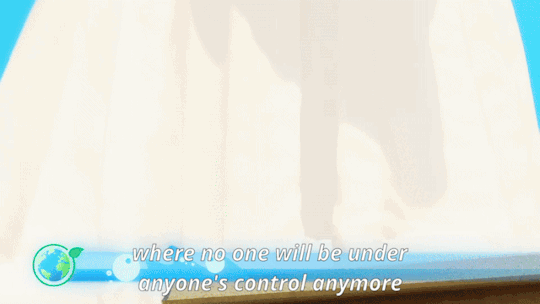
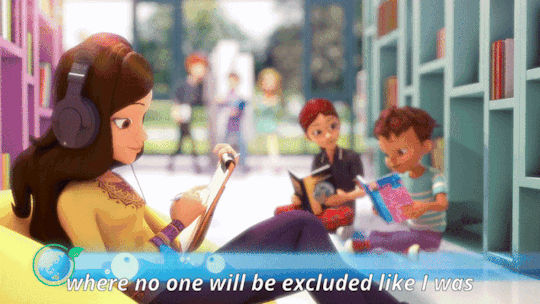

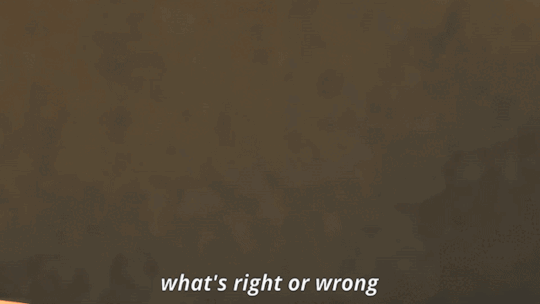
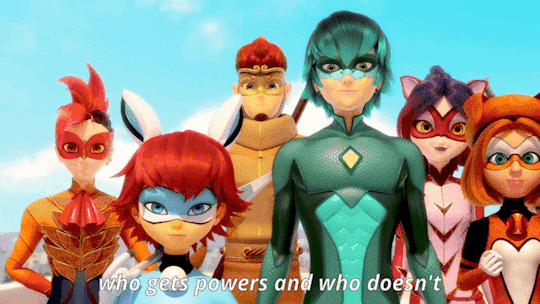
so do you think he succeeded?
#i woke up out of nowhere at seven in the morning with his speech playing in my head over and over again#a better world. a free world. turn me into shredded paper#and i was thinking about how i would be really annoyed if the wish never had any consequences because if that was the case félix deserved#to make his own. in this new world there's still obfuscation. people are still pulling the strings. there's still fucking nepotism LMAO#i also almost put the ring scene as who gets powers and who doesn't because i think a lot about whether ladybug would have granted all#sentimonsters autonomy or only the ones she perceives to be human#i didn't because i couldn't find anything else that fit what's right or wrong but know i have many thoughts on this subject#miraculous ladybug#🌃#ml gifs#ml emotion#ml recreation#ough... félix#sunny from the future here i kept this in my drafts for a bit but it shall now be dispensed to you because i am a magnanimous ruler
183 notes
·
View notes
Text


supernatural 2x21 / ovid at fifteen
#spn#also a secret third thing that has not yet happened but will happen shortly if the lord our god is magnanimous
377 notes
·
View notes
Text
Checo saw all the fight on twitter and said I’ll get both Daniel and Liam a seat
185 notes
·
View notes
Text
Anon wrote: Hey MBTI notes, ESTP woman here looking for some perspective. I have an ENFJ coworker who is kind but seems to expect way too much of me. She will do things like demand I participate in some event or another, and if I say no she gets passive aggressive or loosely implies I’m a bad person for not wanting to do her flavor of activism. I find that the events she goes to feel performative to me - like mosh pits to one up each other morally. I already go out of my way to donate my money to causes I believe in and do volunteer jobs outside of work. And so I feel very annoyed with this woman when she implies I’m selfish for not engaging in her personal idea of what being a good person means.
Another issue I face with her is that she repeatedly has commentary to make about my body or food choices, which I wouldn’t normally have an issue with but the way in which she speaks to me is condescending. Like telling me to eat more or that I look unwell, she knows I had lost a substantial amount of weight and that I have insecurities due to being heavy when younger. But I’m happy with my appearance now so I don’t listen to her trying to insinuate I have a problem, no one else speaks this way to me.
So far I have told her I’m not interested in participating in events she goes to, and that my body isn’t her concern. That has worked but she will just say things adjacent to those subjects now, like mentioning my clothing instead of my body for instance or inviting via e-mail lol. I’m just generally not interested in speaking to her because I don’t think it’s a healthy dynamic for either of us, we are frankly acquaintances and she has tried to control me about 500 different times.
I used to deal with Se-Fe loop and Ni grip when faced with rejection or failure, and so I’d focus too much on the dynamics of ‘how to be a good person’(very abstract and usually unfruitful conclusions other than just being kind) and can become a bit paranoid about what others think of me since I don’t have pristine social/moral confidence, so the pressure she’s putting is definitely not conducive to a life well lived for me. I just try to brush it off but I’m not interested in hearing about my body or problems from another person when I can already scrutinize myself if I wanted to. Any practical advice on how to further deal?
***********************
Given that her behavior exhibits some "mean girl" qualities, it's hard to say whether she would be capable of a mature conversation. In a personal relationship, you communicate about the problem like adults, try to work it out together, and decide what to do together. In a work relationship, there should be a healthy boundary between personal and professional. Sometimes, there are weird power dynamics that make it dangerous to bring up personal issues in the workplace. Your options will depend on several factors:
1) Can Se+Ti work it out? Instead of interpreting her behavior as condescending, controlling, or {insert negative adjective}, why not take her purely at face value? Examples: If she promotes her flavor of activism, take it as a friendly suggestion (based on what she believes is her own authoritative knowledge) and nothing more. If she comments on your body, take it as a show of care/concern for your health/well-being and nothing more. If she expects more of you than you believe is warranted, treat it merely as constructive feedback (to be evaluated and accepted/rejected as you see fit) and nothing more.
You can take people's words as literal and sincere, or you can try to read between the lines and look for hidden meanings. Reading too much into things isn't going to reveal anything useful when what you're actually doing is unconsciously dredging up your past ego dramas (a symptom of Ni grip). The main point is that we all have cognitive biases that prime us to misinterpret information. When you've had a negative past experience with something, those memories make you highly sensitive to any information pertaining to it, and this easily morphs into a personal "issue" (aka "hangup").
Examples: If you've struggled with weight your whole life, you will of course be highly sensitive to weight comments, with a tendency to interpret them in a negative light. If you suffer from social anxiety due to having been rejected by your peers in adolescence, you'll have a tendency to misinterpret people's neutral facial expressions as angry or disapproving.
The human mind is littered with these kinds of biases because we are simply too good at learning from past experience. The question is: Are you 100% certain that you have always interpreted her behavior correctly? Impartiality is one of the key aspects of Ti development. Having mature Ti means that, when making judgments and decisions, you're able to acknowledge biases (aka bullshit) and focus solely on the content that is most relevant. Regardless of who is speaking and why, it should be more important to you whether what they say is factual/relevant to the situation. If what she says is false or irrelevant, what reason do you have to dwell on it? At that point, you're making the choice to dwell because you have ego drama going on, right? Healthy Se should help you quickly move on to something more interesting.
When I was very little, I used to complain about other kids teasing me, even when it wasn't malicious. My mother would say something to the extent of, "People talk shit all the time but it's your choice to eat it up. Are you gonna be a shit eater?" I didn't understand the truth of this until later in life, lol. A person can't get under your skin unless there is a sore spot under there that you don't want them to press on. In development terms, the more you refuse to confront a sore spot, the more you unconsciously attract the very people capable of exposing it. Due to your resistance, those seemingly "annoying" people are the only means left to you for becoming more aware of the problem and the need to resolve it.
Self-responsibility is another key tenet of Ti development. The first step to becoming less sensitive about your sore spots is to take full ownership of them: i) acknowledge that your mind is within your power to control, and ii) when your sore spots produce a negative effect, the onus is on you to learn how to get them under control. To your credit, you've been working on your loop/grip issues, but it sounds like you still have some work to do.
2) Can Fe work it out? Dominant Fe is highly motivated to form a closer relationship with people, so, to some extent, she can't help herself - it would be like asking a bird not to chirp. Because Fe is lower in your stack, there is a mismatch in beliefs about how much personal space one should be entitled to. This is a legitimate difference between FJ and TP that should be given acceptance and understanding. In a healthy relationship, both parties would compromise and try to be respectful of the other's preference.
As it stands, she wants to get closer than you are comfortable with. Do you fault her for triggering your insecurities? Sure, her words don't help matters, but she doesn't know the full extent of your personal issues. If she were a friend, you'd level with her and hopefully she'd understand and back off. But she's not a friend and perhaps her comments are meant to be probing to see where your personal issues lie, which is a natural step in the process of forming a new relationship. Perhaps she feels as though she's been unsuccessful at bonding with you and now she's resorting to immature methods of getting to you because she has taken your "rejection" too personally. That's her own baggage.
An important part of having healthy and mature Fe is nurturing empathy and magnanimity: Try to rise above pettiness and understand what people really need, underneath all the emotional baggage. You could make the choice to be understanding and give her the benefit of the doubt. Assume that her main motivation isn't coming from an evil place but, rather, a place of wanting to develop a relationship with you... despite choosing the wrong methods.
To be clear, it's not your duty to be her friend. But, if you acknowledge that a like-minded friend is probably what she's really after, you'd be more flattered than angry, and you'd be able to approach her with a less defensive/hostile mindset, which should help tamp down the tension in the relationship. The less you come off as "rejecting" in her eyes, the less compelled she will feel to prove anything. If she is indeed creating a drama out of her failure to form a relationship with you, the more you demonize her, react to her provocations, and feed into her suspicions, the harder she'll come at you. Sometimes, no response or an indifferent shrug works better than a sword at repelling an unwanted advance.
3) Can you set better boundaries? The obvious way is to avoid interacting with her, but that might not always be possible when you share the same social spaces. You've set boundaries to some extent by pushing back whenever you think she's being too inappropriate. If she's actually just a bully underneath it all (I can't make this judgment based on such limited information), attempts to be diplomatic may just be taken as participation in her mind games, in which case, bluntness could be more effective.
Let's say you push back exactly as hard as you wish to, what would the social consequences be and could you bear them? If you don't care about whether she likes you and she doesn't have the power/inclination to do any real harm to you, tell her to keep out of your business in no uncertain terms. Be firm but not mean (by avoiding personal attacks). However, if you don't want to have her ire hanging over you and/or you have reason to believe she could make your life difficult, then perhaps the first two options are the way to go. Use your best judgment.
#estp#estp relationships#auxiliary ti#tertiary fe#impartiality#critical thinking#self responsibility#empathy#magnanimity#boundaries#workplace#ask
22 notes
·
View notes
Text

elf practice
satu and nurura are @zurin's characters <3
#in a fit of magnanimity i gave sala back his eyebrows#skyrim#my art#oc tag#ravi#lasana#duls#sala#rafe and alf#finna and gleeb#pirer
70 notes
·
View notes
Text
man the dev notes w/ the stormshore tabernacle convo. whatever they're there for it's kind of remarkable how so much of the notes there for her are just textbook abuser stuff.
#tbd#after all the advantages I gave you -- i have the visceral skin crawl reaction its the abusive parent anthem#things that make my skin crawl bruh#it's everything I did for you#child who i groomed#I'm being so magnanimous towards you giving you time == child who i groomed#look at how merciful i am even though my first instinct is that i don't like how you didn't obey me#the dev notes of that convo genuinely make it worse boooy#which well done but also i will throw hands#dming helm pls kill her again#anyway i think it's kind of fascinating that most gods in this game show themselves as these larger than life figures but mystra?#you are seeing the person who did that to gale you are seeing that person#that person came to him as a child#like that divine separation has just not been there#esp with the build up#where she first dispatches elminster and then again when he tells you about the grant but at the end it's just her in this human figure#i genuinely feel like it deliberately strips that divine separation away & its another layer of insidiousness on her part#it's grounded in the sense of the damage she'd done to gale idk i am waffling but its just something about it is worse when it's so..wow.#idk i think in this game? i think she's not written like the other gods in this game and i think it makes her worse not more sympathetic#bg3 spoilers#abuse tw
110 notes
·
View notes
Text

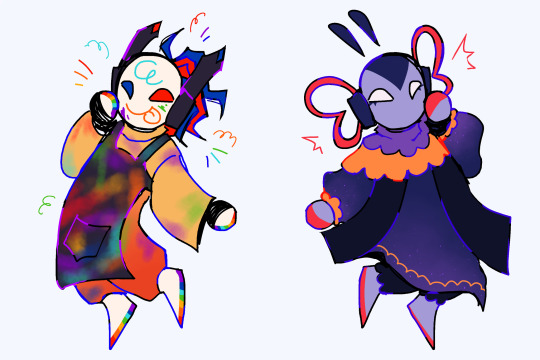

ability to draw and its consequences
#Hi . not to make another group of iterators But i did . for funsies#going back to class and its consequences#somethhing bad already happening to me#the coloring for these guys was so difficult i thought it was so over. But we were so back. all of them kicked my ass#except maybe drc and fmn those two were kind of fine. everyone else kicked my ass majorly#i completely had to recolor bug and home a few times to be satisfied with their designs#sorry for saying their acronyms with zero explanation hold on#oc: watchful eye#oc: in case of emergency#oc: delicious rainbow’s colors#oc: betwixt umber gleaming#oc: homebound oddly magnanimous everlife#Long asf name but it is what it is#oc: forget me not#ok. that’s all#Hold on they just made me get up from the bed#ok it’s fjne i lied back down#umm#myart#rain world#iterator oc#Not sorry for party rocking and making ten billion iterators#you can ask things if you want. i dont know anytning but it’s okay we will find out things together
87 notes
·
View notes
Text
cats are like. the fact that i frew up all over myself and my bed when you went on holiday for a week does NOT mean i like you or anything. idiot.
#i thought the smell might help you find your idiot way back to me or whatever. not like i care. next time i won't be so magnanimous.#maybe you shouldn't leave again#yes i will allow you to pat me#emetophobia cw
21 notes
·
View notes